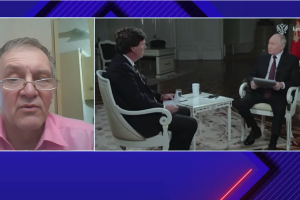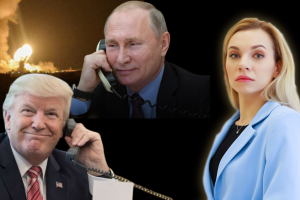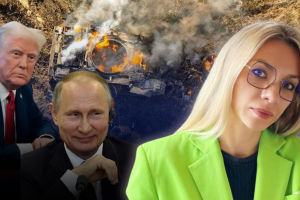New bill on the Donbas: what’s it about?
A working group is drafting a bill that would grant status to the temporarily occupied uncontrolled territory of the Donbas. In important detail of the new bill on the de-occupation of the Donbas is the possibility of the declaration of a martial law in certain districts on the frontline.
The majority of experts commenting on the new bill regarding the Donbas believe this to be the right step. Of course, the comments are quite reserved and cautious, including from the parties of the ruling coalition, seeing as the matter is about a document it has yet to see. Thus far even a concept of the bill has yet to be widely available.
On the whole, from what has been said one can highlight two important features. Firstly, the wording “temporarily occupied territories” should have been introduced in this bill a long time ago. Secondly, the format of the ATO zone is being changed to a military operation format. This is also correct as the ATO ended back in August 2014 when regular Russian military forces were ushered into Ukraine. Another important aspect of the new bill is the possibility of the declaration of a martial law in certain districts on the frontline. At the moment, the procedure of declaring a martial law is fixed in the Constitution and registered for the entire country or for separate oblasts. Besides that, this requires approval by the Verkhovna Rada. The new law will make the procedure for introducing a martial law more local and more flexible precisely in those places where there is military action.
This begs the question: To what extent does this bill differ from the one that was introduced by Samopomich? Judging from what the spokespersons of the Petro Poroshenko Bloc say, it appears that in the previous bill they are not pleased with the thesis suggesting that Ukraine does not bear responsibility for its citizens on the occupied territory. It is envisaged that in the VR session hall there will be much debate regarding the new bill, but for those factions that call themselves democratic it would be logical to support this bill. It corresponds to that which the military, volunteers, political experts, the opposition parties and the majority of Ukrainian people have been long demanding. So, the majority of the population agrees that this is not an ATO and that it does not make sense to speak about granting “special status”, holding elections on the occupied territory, introducing amnesty, etc.
The international aspect of the bill. Does it contradict the Minsk agreements? It is clear that Russian propaganda would say: of course it contradicts them. Personally, I see no contradiction because the Minsk agreements envisage a stage-by-stage resolution of the conflict: first security, and only then political regulation. At the given moment, everything is stuck at the level of the security issue. Point 1 of the accords – a truce – has not been implemented. For this reason, the current position of Ukraine is acceptable for our Western partners. While earlier they said: “Make amendments to the Constitution, grant “special status” and hold elections”, now it is clear to all sides that this is simply impossible.
Allow me to offer an example. One of the party groups in the European Parliament held a regional conference in Kharkiv. They traveled to Slovyansk in order to see the situation on the spot. One of the variants of the program envisaged a further trip to entry and exit checkpoints on the frontline. But the leadership of the party group strongly advised not to go there due to the high level of risk and in the end nobody paid a visit to these checkpoints. So, the question arises: If it is dangerous to even visit a checkpoint, which a huge number of people pass through every day, then how can one speak of some kind of monitoring of the situation in the Donbas by international observers for the holding of elections? This is absolutely impossible. Another interesting question: How is this all related to the visit of President of Ukraine Petro Poroshenko to Washington? Did he go there to coordinate this document with U.S. President Donald Trump? Ukrainian sources confirmed that it was discussed. But it is difficult to imagine a situation in which this bill would be rejected after it was announced. I think the process has gone forward, though certain details and wordings of the bill can be clarified with Ukraine’s Western partners.
Original: Новое время (Novoye vremya - New Times)









